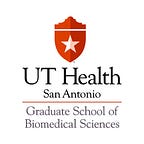What Led Me To Become A Surgical Oncologist
Dr. Carla Zeballos was inspired to become a surgeon after taking care of her relative who had cardiovascular disease requiring multiple surgeries.
“My family has a history of cardiovascular disease so I became interested in medicine at a young age, she said. “But it wasn’t until medical school that I engaged in clinical research. This research experience proved to have direct implications on patient care and I became more interested in pursuing research opportunities.”
After completing medical school, Dr. Zeballos decided to pursue UT Health San Antonio for general surgery residency because of the large Hispanic population in South Texas and the option to participate in research.
“When I did my rotations in surgery residency, I realized I wanted to work with cancer patients. Cancer patients are very sick with an unpredictable disease, but they’re so very grateful for what we do,” she said. “Surgical oncology is also a field where you have to keep up with research because it’s a field that’s constantly changing and sometimes the treatments we can offer aren’t enough.”
At the end of her second year of residency, she applied to the Cancer Biology discipline of the Integrated Biomedical Sciences Ph.D. program. She is currently in Dr. LuZhe Sun’s lab looking at the role of genetics in liver disease in South Texas Hispanics.
“The incidence rates of hepatocellular carcinoma for Hispanics in South Texas are disproportionately higher than other parts of Texas and the rest of the United States,” she said. “We recently found a gene whose expression is more prevalent in South Texas Hispanic patients than non-Hispanic Caucasian patients. We want to find out if this gene along with the high rate of obesity and diabetes is impacting the progression of this disease.”
Dr. Zeballos recently learnt that she is one of the recipients of the 2017 AACR Minority Scholar in Cancer Research Award, a program administered by the American Association for Cancer Research with funds provided by National Cancer Institute. This award, worth almost $2,000 will enable Carla attend and participate in the AACR Annual Meeting 2017 held from April 1–5 in Washington, D.C.
“I thought that this award would be a good opportunity to meet other minority scholars, P.I.’s, and other researchers focusing on research on diverse populations and health disparities in cancer,” she said.
Dr. Zeballos recently attended the European Association for the Study of the Liver HCC Summit in Geneva, Switzerland to showcase her research.
“It was great to talk to people about the research happening in Europe but I’m excited to see what research is taking place in the U.S. at the AACR conference,” she said. “In Geneva, we met people who are working on similar mouse models because of the similarities between South Texas Hispanics and the populations of Italy and Greece, who also have a high prevalence of obesity and diabetes. They are also utilizing these models to see how nonalcoholic fatty liver disease is causing the progression of liver disease, eventually leading to liver cancer.”
Besides research, Dr. Zeballos is still taking call at University Hospital one weekend every two months at the Surgical Intensive Care Unit.
“Whether it’s inserting lines or intubating or just general ICU care, it helps keep my skills up and it also reminds me why I’m here,” she said.
Dr. Zeballos explained that being in the Ph.D. program has helped her become a better doctor.
“Most surgical residents do a Master’s program but being exposed to the Ph.D. program makes me think like a scientist. Skills such as interpreting data, thinking critically, and generating my own experimental designs are invaluable skills to gain,” she said.
Dr. Zeballos hopes to become a principal investigator with her own lab in addition to being a surgical oncologist.
“I want my clinical skills to be influenced by my training as an investigator and my research interests to be informed by understanding my patients and their circumstances,” she said.
This article is part of the “Meet The Researcher” series which showcases researchers at the Graduate School of Biomedical Sciences at University of Texas Health Science Center San Antonio.
